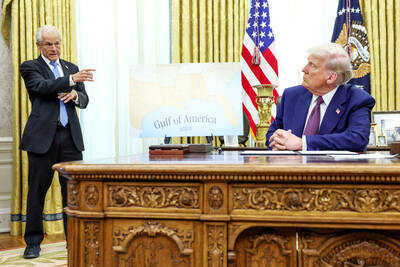The new Roman Catholic Archbishop of Harare publicly criticized the Zimbabwean government's poor human rights record Saturday, drawing a scathing attack from President Robert Mugabe.
Archbishop Robert Ndlovu told a crowd of some 6,000 people, including Mugabe, who turned out for his inauguration that free expression, association and assembly were rights the church supported.
Zimbabwe has been wracked by political violence and economic turmoil in recent years as Mugabe's government has seized thousands of white-owned farms for redistribution to blacks. Seeking to crack down on dissent, the government has arrested opposition leaders, trade unionists and independent journalists.
"The role of a bishop and of the church in general is to stand up for human dignity, and from human dignity flow human rights," said Ndlovu, who was formerly the Bishop of Hwange, a city in northwestern Zimbabwe where up to 20,000 suspected opposition supporters were killed by Mugabe's security forces in the 1980s.
After Ndlovu finished speaking, Mugabe made an impromptu speech, attacking unnamed religious leaders who "joined hands with erstwhile colonial masters to peddle lies about the state of affairs and demonize Zimbabwe."
Mugabe often accuses critics of being league with Zimbabwe's former colonizer, Britain, and other Western nations.
Before leaving, Mugabe commended the Catholic church for giving him his early education as a mission teacher and took communion with his wife.
Ndlovu's appointment last month drew sharp criticism from Zimbabwe's state-controlled media, which said that one of several known pro-Mugabe clerics from Mugabe's majority Shona tribe should have been made Harare archbishop. Ndlovu is from the minority Ndebele tribe.
Friday, Mugabe's government published plans for new restrictive legislation banning foreign human rights group and making all private relief work subject to stringent state controls.

‘EYE FOR AN EYE’: Two of the men were shot by a male relative of the victims, whose families turned down the opportunity to offer them amnesty, the Supreme Court said Four men were yesterday publicly executed in Afghanistan, the Supreme Court said, the highest number of executions to be carried out in one day since the Taliban’s return to power. The executions in three separate provinces brought to 10 the number of men publicly put to death since 2021, according to an Agence France-Presse tally. Public executions were common during the Taliban’s first rule from 1996 to 2001, with most of them carried out publicly in sports stadiums. Two men were shot around six or seven times by a male relative of the victims in front of spectators in Qala-i-Naw, the center

Canadian Prime Minister Mark Carney is leaning into his banking background as his country fights a trade war with the US, but his financial ties have also made him a target for conspiracy theories. Incorporating tropes familiar to followers of the far-right QAnon movement, conspiratorial social media posts about the Liberal leader have surged ahead of the country’s April 28 election. Posts range from false claims he recited a “satanic chant” at a campaign event to artificial intelligence (AI)-generated images of him in a pool with convicted sex offender Jeffrey Epstein. “He’s the ideal person to be targeted here, for sure, due to

DISPUTE: Beijing seeks global support against Trump’s tariffs, but many governments remain hesitant to align, including India, ASEAN countries and Australia China is reaching out to other nations as the US layers on more tariffs, in what appears to be an attempt by Beijing to form a united front to compel Washington to retreat. Days into the effort, it is meeting only partial success from countries unwilling to ally with the main target of US President Donald Trump’s trade war. Facing the cratering of global markets, Trump on Wednesday backed off his tariffs on most nations for 90 days, saying countries were lining up to negotiate more favorable conditions. China has refused to seek talks, saying the US was insincere and that it

As Elon Musk called one of US President Donald Trump’s top economic aides a “moron,” the White House on Tuesday declared that “boys will be boys.” Musk and long-time Trump trade adviser Peter Navarro have been squabbling publicly over Trump’s decision to impose sweeping tariffs on most of its trading partners. The move has triggered a market sell-off and prompted analysts to wonder if the US is headed into a recession. “Look, these are obviously two individuals who have very different views on trade and on tariffs,” White House press secretary Karoline Leavitt said. “Boys will be boys, and we